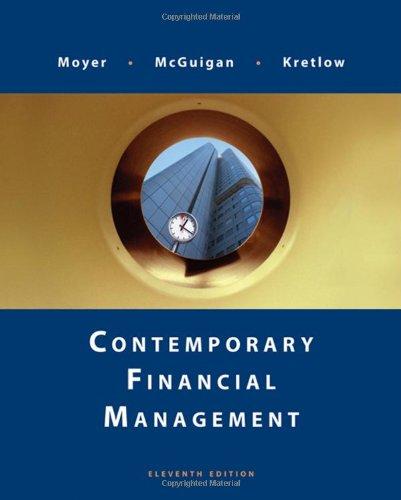Answered step by step
Verified Expert Solution
Question
1 Approved Answer
You're beginning your sophomore year in college, and so you just paid your full, sophomore year tuition. You're one year away from starting your junior
You're beginning your sophomore year in college, and so you just paid your full, sophomore year tuition. You're one year away from starting your junior year of undergraduate work. To complete that junior year of undergraduate work, and then your final senior year of undergraduate work, and THEN go through LLM school five more years you estimate you will need $ per year for each of the years that is you will need to withdraw the first $ one year from today, the next $ two years from today, etc. Your wealthy uncle offers to finish putting you through school, and he will deposit in an account, paying APR annual interest, a sum that is sufficient to exactly provide the seven payments of $ each. His full gift will be made today.
a How large must your uncle's deposit today be
b Assume your uncle's gift amount holds use your answer to part a You're hoping to have $ left in the account, rather than having it drawn to zero, at your LLM graduation years from now how much would your annual, equal deposits into this same account each year, beginning one year from today...and also two years, three years, four years, five years, six years, seven years, and eight years this last one earns no interest from today so that you could have this $ ready as a home down payment? All other assumptions, including the return rate, continue to hold...EXCEPT, you now have earned a scholarship that will reduce each of the above annual tuition expenses from $ down to $ With your uncle's already agreed upon help from part a this scholarship, and your $ in years' goal what must your annual contribution be OR if your savings from the scholarship is enough, on its own, for you to reach the $ in years' goal without more of your own contributions, then how much OVER $ will you have accumulated without any of your own annual contributions?

Step by Step Solution
There are 3 Steps involved in it
Step: 1

Get Instant Access to Expert-Tailored Solutions
See step-by-step solutions with expert insights and AI powered tools for academic success
Step: 2

Step: 3

Ace Your Homework with AI
Get the answers you need in no time with our AI-driven, step-by-step assistance
Get Started


